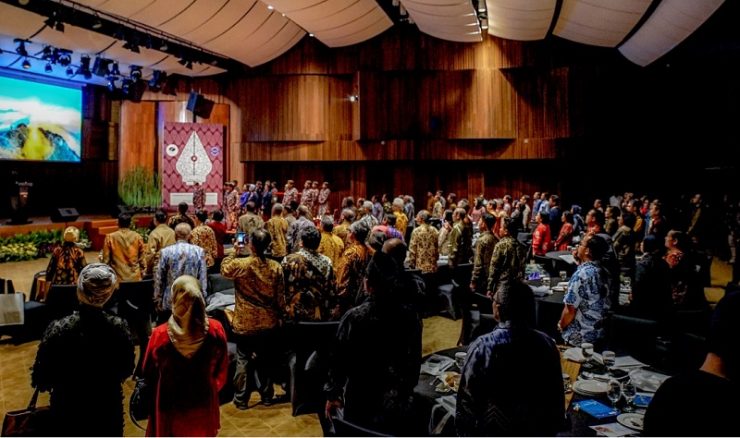THE Ministry of Tourism & Creative Economy will encourage the implementation of the domestic MICE industry as a strategy to improve the industry in the new normal order situation after the COVID-19 epidemic, by organizing activities that combine online and offline events.
According to Rizki Handayani, Deputy for Organizing the Event of Tourism Ministry in her statement, Wednesday (3/6) said, MICE industry plays an important role in the revenue of the country’s Gross Domestic Product (GDP). Data from the Industrial Council Event in 2018 said that in 2017 the MICE industry in Indonesia generated a total GDP of US$7.8 billion and created 278,000 jobs.
“MICE tourists have an average level of length of stay and ASPA (Average Spending per Arrival) is higher than leisure tourists. MICE tourists have an average spending capacity of US$2,000 per day with an average length of stay for five days,” said Rizki Handayani.
However, these conditions later changed with the COVID-19 pandemic which also hit the MICE industry. The COVID-19 pandemic had a strong impact on adjustments in organizing international meetings such as cancellations, delays, location changes, and so on. Asia Pacific is listed as the most affected region.
Data from the International Congress and Convention Association (ICCA) said, until April 6, 2020 there was an adjustment to 48% of meetings or to 1,749 international meetings held during the period from February to June 2020.
Meanwhile in Indonesia, data from IVENDO said there had been 96.4% delays and 84.8% of event cancellations in 17 provinces. Estimated losses from 1,218 organizers throughout Indonesia ranged from 2.7 to IDR6.9 trillion. As well as an impact on a total of 90,000 workers.
“The COVID-19 pandemic affected 90 percent of event cancellations or delays until the end of 2020. For this reason, in line with the government’s efforts to overcome the spread of COVID-19, the industry is expected to be able to prepare and anticipate changes that will occur in the future implementation of MICE. The COVID-19 pandemic really provides a change in behavior in the community that will focus more on paying attention to factors related to cleanliness, safety and comfort,” Rizki Handayani noted.
She explained and no less important is the disruption of technology, where the acceleration of digital and information technology is faster than it should be. Where it is estimated that there will be a shift from offline to online or a combination of online and offline activities.
“The disruption factor makes online and offline events mutually support and complement each other. Virtual events expand the audience’s potential and build new revenue streams.The increase in online meetings and technology development makes virtual events a new normal,” she added.
The Ministry of Tourism & Creative Economy, said Rizki Handayani, will ensure the MICE sector’s recovery strategy by involving the industry. In addition to compiling protocols for the implementation of MICE activities after the pandemic that lead to sustainability trends and aspects of risk prevention procedures, health and safety protocols, but also together encourage increased industrial capability, technology network infrastructure, and new innovations.
“In the future we will encourage to stimulate the domestic market first so that it will start to carry out MICE activities in the destination again. This includes encouraging government and corporate meetings to become more domestic,” Rizki Handayani affirmed.
But she stressed, the implementation of activities in the destination will see the readiness of the region. The Kemenparekraf has drawn up a new protocol on normalcy for tourism to be implemented when an area is declared ready.
“The implementation of these stages must be closely monitored and disciplined and consider the readiness and role of the Regional Government in supervision and evaluation,” she concluded. [traveltext.id]
















